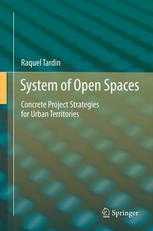

Most ebook files are in PDF format, so you can easily read them using various software such as Foxit Reader or directly on the Google Chrome browser.
Some ebook files are released by publishers in other formats such as .awz, .mobi, .epub, .fb2, etc. You may need to install specific software to read these formats on mobile/PC, such as Calibre.
Please read the tutorial at this link: https://ebookbell.com/faq
We offer FREE conversion to the popular formats you request; however, this may take some time. Therefore, right after payment, please email us, and we will try to provide the service as quickly as possible.
For some exceptional file formats or broken links (if any), please refrain from opening any disputes. Instead, email us first, and we will try to assist within a maximum of 6 hours.
EbookBell Team

4.4
92 reviewsIn the current panorama of urban growth and planning in many urban territories of western societies, open spaces are residual spaces of urban occupation or are reserved for eventual occupation. Open spaces have been viewed in this manner in the earlier stages of the compact city and especially now, in a time of the dispersed territories characterized by discontinuity, heterogeneity, and fragmentation.
The disciplinary perspectives of ecology, geology, landscape architecture, and urbanism, but also public opinion, have for some time promoted the conservation and protection of the most valuable natural spaces, and efforts have been made to remove such spaces from the real estate market. However, such positions, usually radical, are insufficient for territorial equilibrium and inevitably lead to the progressive disappearance of valuable natural spaces.